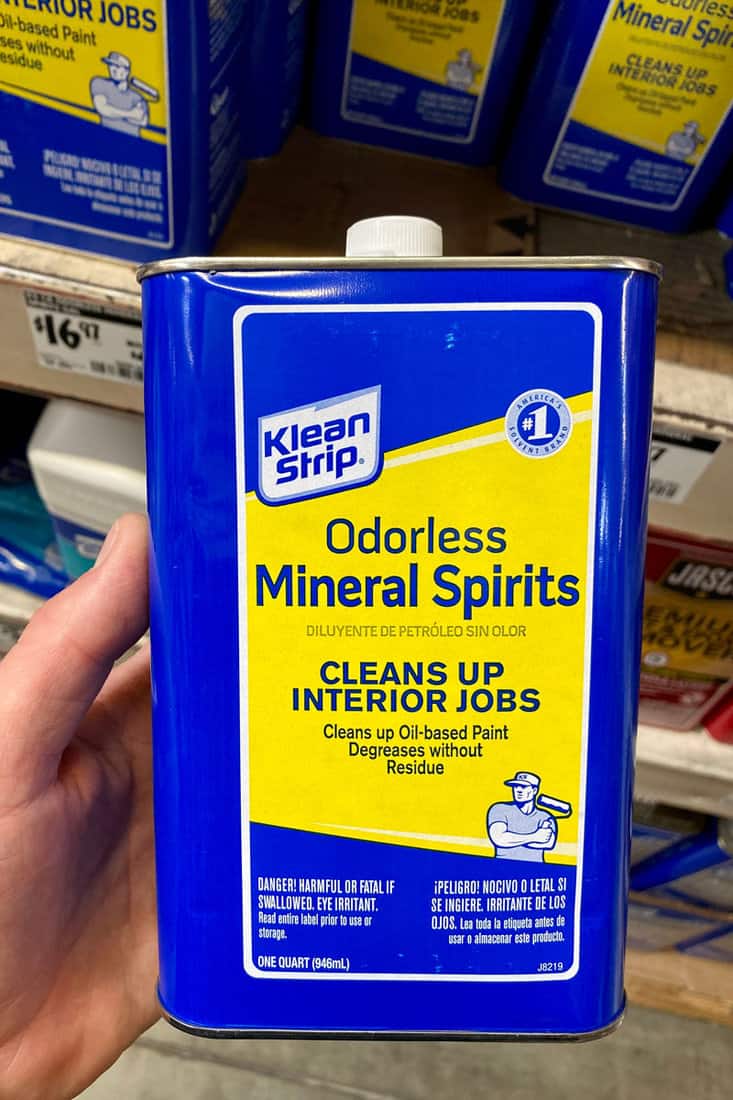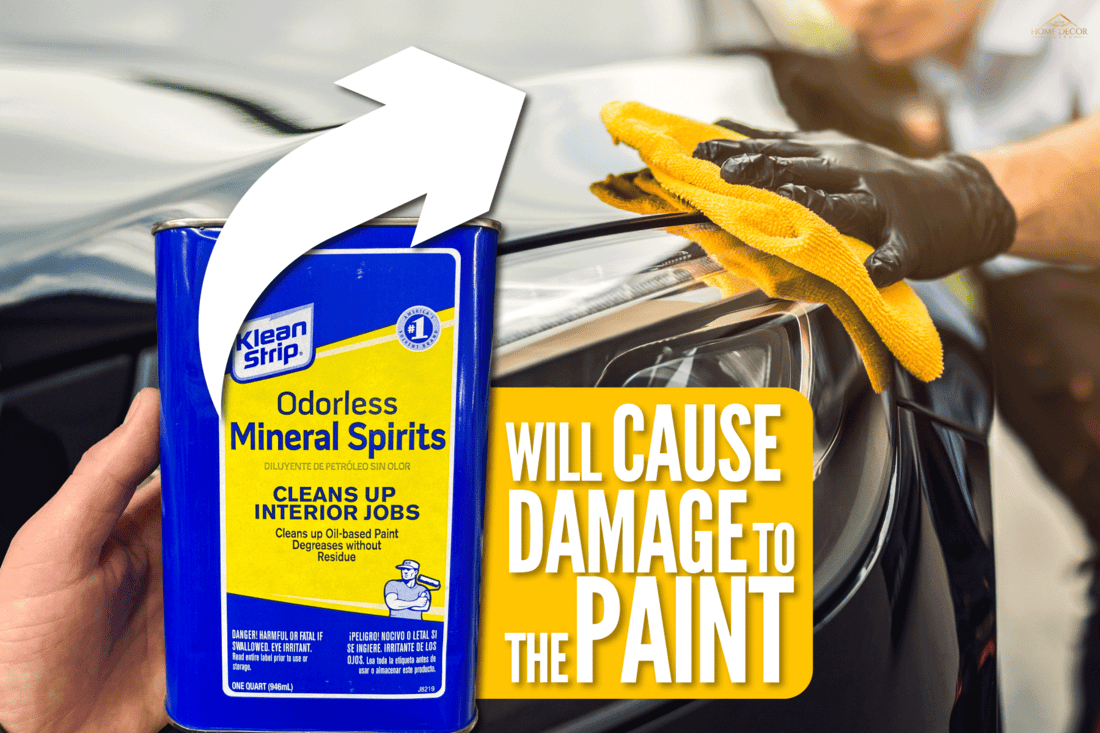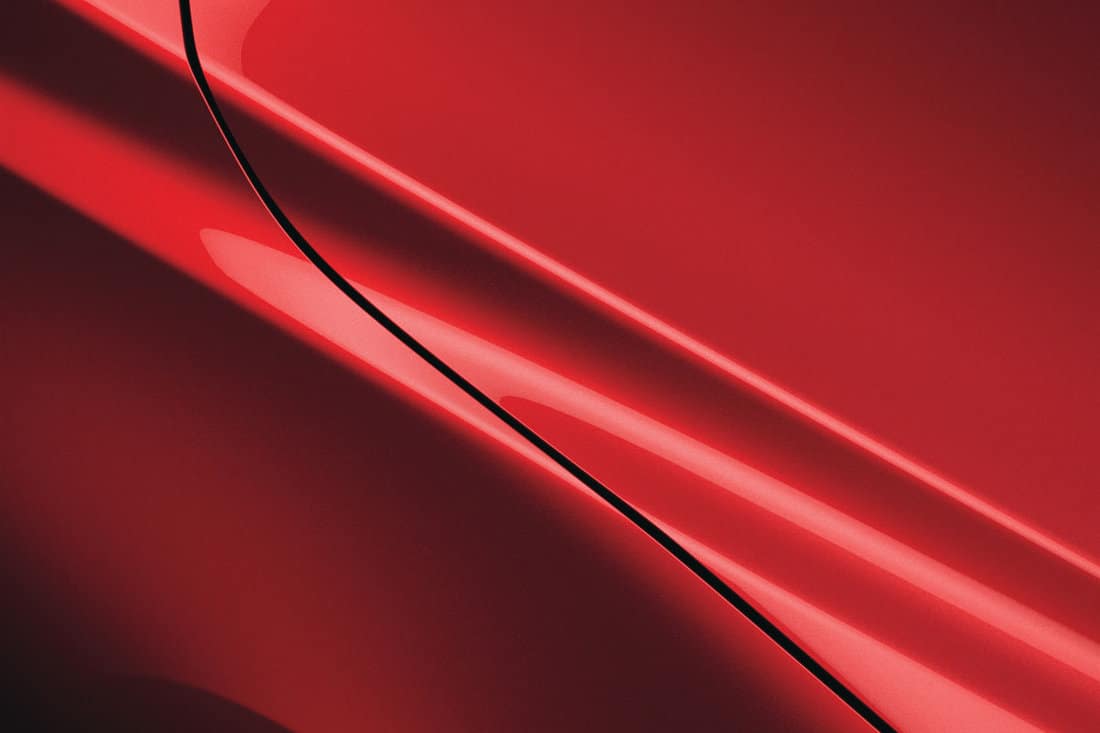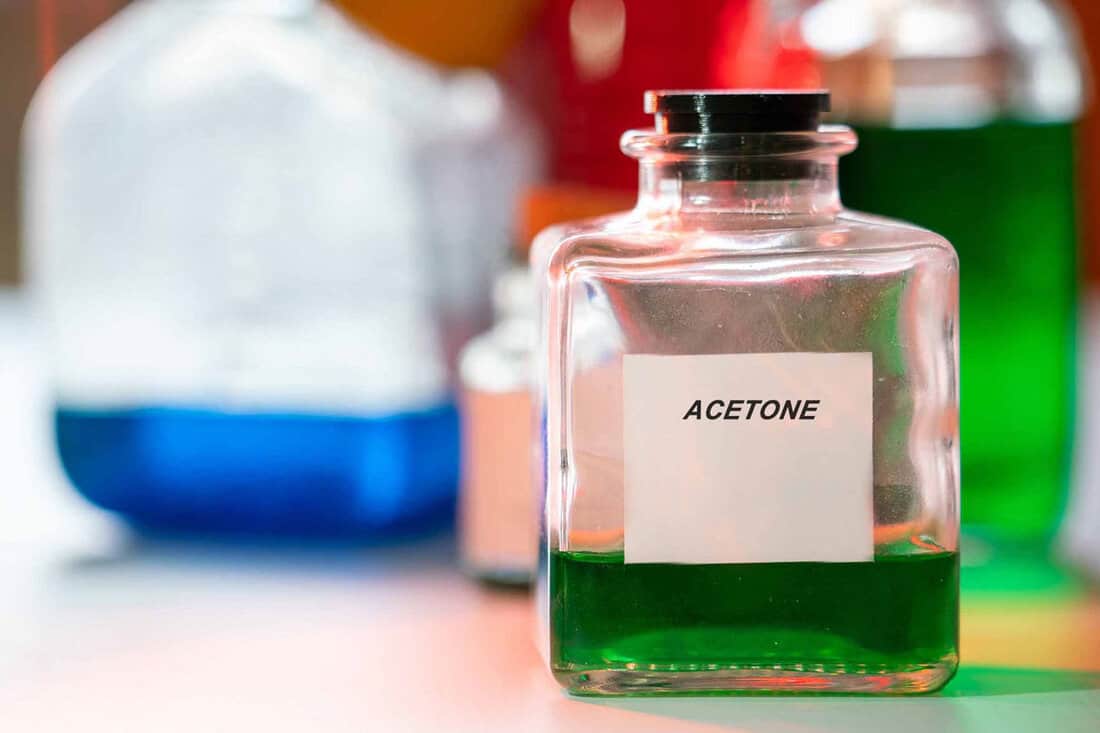If you work with certain solvents, you should be aware of the various risks to your health that they can pose. Should you have concerns about whether mineral spirits can be harmful to your skin, we can help.
We researched mineral spirits from multiple professional sources, so you'll know how safe it is.
Mineral spirits will be an irritant to your skin. In extreme cases, this solvent can lead to necrosis. Necrosis will make holes in the skin due to premature skin cell death.
Now that we know that mineral spirits can harm your skin, we'll look at why this solvent poses a danger. You might also wonder what other ways mineral spirits can be harmful or what you shouldn't use mineral spirits on.
For the answers to these questions and more, read ahead in this post to see what our research has uncovered.
How mineral spirits are damaging to your skin
When you are using any solvent, certain precautions need to be taken to protect yourself.
Working in a well-ventilated area, using protective eyewear, and having a way to clean up accidental spills are great precautions you should take.
But you will also need to take certain measures to protect your skin when using mineral spirits.
Mineral spirits are comprised of hydrocarbons. These are made up only of hydrogen and carbon atoms and are commonly found in other harmful substances like methane and benzene.
A splash or two on your skin won't probably damage it, but not wiping it away can lead to some pretty gruesome effects.
Mineral spirits will keep the skin from producing a needed protein
Hydrocarbons will keep the skin from producing collagen, a vital protein. When this happens, the skin can become red and irritated.
In most cases, this will happen when a person's skin is exposed to mineral spirits that aren't removed.
But necrosis can set in if the skin is exposed to a lot of this solvent. The lack of collagen production will make the skin cells die prematurely. This will make black spots appear, eventually giving way to holes.
Take precautions and be ready to clean your skin if it's exposed
Though this is an extreme example of what could happen, it's worth knowing about. When you're working with mineral spirits, safeguard your skin as best you can.
If any of these solvents come into contact with your skin, thoroughly clean the area to avoid any potential skin irritation.
What are the other health risks from mineral spirits?
Earlier in this post, we discussed how mineral spirits could damage a person's skin. But this solvent can also harm the human body in other ways.
So when you're working with mineral spirits, you should be fully aware of the risks involved so that you can avoid harm.
Our research has uncovered many potential risks to your health if you misuse mineral spirits. Study these risks carefully and take necessary precautions.
Mineral spirits will damage the lungs.
It's always wise to work with mineral spirits in a well-ventilated place. The fumes from this solvent should never be inhaled. Doing so will pose some pretty serious risks to the respiratory system.
The lungs are not meant to be exposed to hydrocarbons. If too many particles make their way into the lung tissue, breathing will become very difficult. This can make a person pass out from lack of oxygen.
The eyes, ears, nose, and throat should also be safeguarded
If you inhale the fumes, you might find that mineral spirits will swell your throat. This makes it hard to swallow and can make it harder to breathe.
An accidental ingestion of mineral spirits will burn the mouth and tongue. Severe pain will develop in the ears as well.
Should any of this solvent come into contact with the eyes, it can cause blindness.
Ingesting mineral spirits damages the digestive system
Accidentally drinking mineral spirits will do a lot of damage to the digestive system, too.
The esophagus will be severely burned. And when it makes its way to the stomach, the lining there will become irritated. Bloody stools from intestinal damage will happen.
The impacted person might also vomit blood.
The nervous system can also be impacted.
The brain isn't immune from this solvent, either. Prolonged exposure to the fumes can cause severe dizziness, fainting, and headaches. In extreme cases, memory loss can happen.
The fumes can also cause disorientation and confusion.
Lastly, the heart can be damaged by this solvent.
If the above health risks weren't enough, the damage to the heart can be enough to be quite severe. Ingestion of mineral spirits can cause a sudden and drastic drop in blood pressure. This can mean passing out.
In extreme cases, ingesting mineral spirits will cause death. So take all necessary precautions and contact poison control immediately if you or someone else has accidentally ingested or inhaled this solvent.

What should you not use mineral spirits for?
Mineral spirits are the perfect way to clean up paint spills, degrease automotive parts, or remove soiled particles from garden tools.
It also works perfectly for cleaning paint from paintbrushes after a project. But there are some things you should be careful applying this solvent to.
We sometimes add affiliate links and content that was curated and created by our team with the help of advanced ai tools to help showcase the best design styles.

It's not advisable to use mineral spirits on automotive paint. If there are any cracks or deep scratches, the solvent will seep in and eat away at the paint. It also dissolves the wax and will do damage to the protective coating of the paint.
Some folks will use mineral spirits to clean and degrease their hardwood floors. Though it's possible to do this, it's not recommended.
The hydrocarbons in mineral spirits will disintegrate the protective wax coating on the wood. Using an approved cleaner on your home's hardwoods is best.

Are mineral spirits and acetone the same?
Some folks might think that acetone and mineral spirits are the same. But while they are both used as thinners, they are used in different ways. Confusing the two should be avoided, as using the wrong one can damage your project.
Mineral spirits can be used as a paint thinner. Whether employing this solvent in a paint sprayer or using it to clean your brushes afterward, mineral spirits can be a great way to work with certain paints.
Acetone, on the other hand, is commonly used to thin out lacquer. Like mineral spirits, acetone can also be used to clean up various spills and is especially useful in removing old fingernail polish.
Acetone is also more flammable than mineral spirits.

What to do with mineral spirits when done cleaning brushes
Mineral spirits work well in cleaning paint from paintbrushes and removing grease from automotive parts.
But when you're finished soaking these items, you might wonder what to do with the leftover mineral spirits they were removed from. One thing is for sure, never dump them onto the ground or into the sink.
Mineral spirits are damaging to your skin, so think of how damaging they would be to the environment.
Dumping old mineral spirits onto the ground or into the sink will make this solvent work its way into the groundwater. This makes for a toxic situation for both humans and wildlife.

You can dispose of unwanted or used mineral spirits by contacting your local landfill. They will take solvents and safely dispose of them. Alternatively, you can filter mineral spirits through a coffee filter for reuse.
Final thoughts

Like most solvents, mineral spirits should be treated with extreme caution to avoid damage to the skin, eyes, lungs, and other body parts.
Any accidental ingestion should be reported to poison control immediately, and their instructions followed. Know where and where not to use this solvent so you can ensure that projects are not damaged.
We're glad you made it this far! We hope this post on mineral spirits answered all your questions. For additional information, we recommend reading the following posts:
Do Mineral Spirits Freeze? [Can They Be Stored In The Garage?]
How Long Do Mineral Spirits Take To Dry?
Why Is Your Paint Not Sticking To Wood? [& What To Do About It?]
